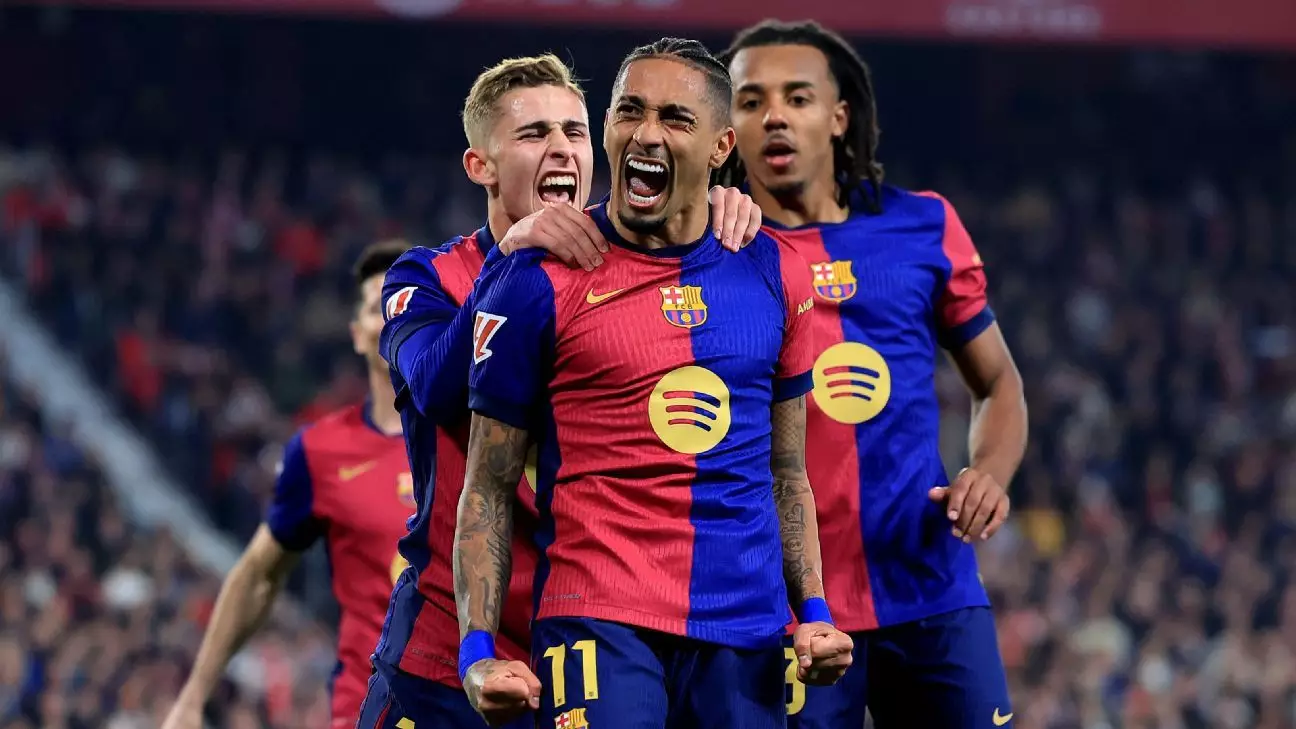In the high-stakes world of football, player morale is as crucial as technical ability. When Raphinha joined Barcelona from Leeds United in 2022, expectations soared high. His talent was undeniable, yet the relationship with former coach Xavi Hernández was fraught with challenges that turned potential into frustration. Raphinha’s admission that he felt a distinct lack of confidence from Xavi raised eyebrows in the football community and painted a picture of a once-promising partnership soured by missed opportunities.
Though Raphinha contributed considerably to Barcelona’s LaLiga title triumph in 2023, his on-field time was often limited. The sheer competition for starting positions among notable players like Ousmane Dembélé and Lamine Yamal only added to his struggles. In any club, especially one with the stature of Barcelona, player rotation can commonly dictate who gets to shine. However, what tends to be overlooked is the psychological impact of being benched—or, worse yet, taken off early during matches.
“I gave everything I could give and had an impact on games,” he lamented, recounting his experiences. Yet the coaching staff’s decisions seemed to undermine his efforts. Raphinha’s sentiments shine a light on the necessity of trust between players and their managers. When players feel undervalued, their subsequent performances can reflect that disconnect—a truth often glossed over in the glitzy narratives of sports.
A Turning Point: The Departure of Xavi
With a coaching shake-up often comes a renaissance for the players left behind. After Xavi departed from Barcelona, Raphinha seized the moment, gracefully escaping the shadows of frustration that hampered his performances. Under new guidance from Hansi Flick, the Brazil international experienced a resurgence that not only revived his confidence but also rekindled his passion for the beautiful game.
In juxtaposition to the previous regime, Flick has fostered a nurturing environment that prioritizes player engagement and tactical flexibility. Raphinha’s newfound success—with an impressive tally of 31 goals and 48 starts in the ongoing season—illustrates the profound difference a supportive coach can make. Flick’s holistic approach to management stands in stark contrast to Xavi’s, which Raphinha described as rigid and unwavering. This evolution under Flick serves as a reminder of how vital the coach-player dynamic is in professional sports.
Moreover, Raphinha’s transition to a slightly different playing position reveals another layer of tactical adaptability that Flick has embraced. Football is not solely about individual skill but also about how players synergize within a changing game environment. By trusting Raphinha with more responsibility on the pitch, Flick has not only revitalized an important player but potentially transformed the team’s dynamics heading into crucial matches like the Champions League semifinal against Inter Milan.
The Bigger Picture: Confidence, Growth, and Future Aspirations
Raphinha’s experience raises pivotal questions surrounding the treatment of players in high-pressure environments. Is it fair to diminish individual contributions due to the fluctuations of squad competition? Should coaches be more attuned to the personal ambitions and psychological needs of their players?
Raphinha’s journey continues to demonstrate that football is about more than just skill; it’s about fostering an environment that incentivizes growth. His candid reflections on his past experiences do not just serve as a critique of Xavi but also highlight the immense importance of self-belief in the world of elite sports. Athletes require that trust, as it ignites their innate abilities, empowering them to take risks and express themselves on the pitch.
Looking ahead, if Raphinha maintains his trajectory, he is firmly in the discussion for accolades like the Ballon d’Or. This accolade isn’t merely about individual greatness; it embodies the dip and swell of a player’s career. It’s evident that Raphinha has transitioned from a marginalized role to one of central importance in Barcelona’s ambitions for a treble, but it is in this growth that his true story lies—one that advocates the balance between talent and trust, hope and perseverance.

